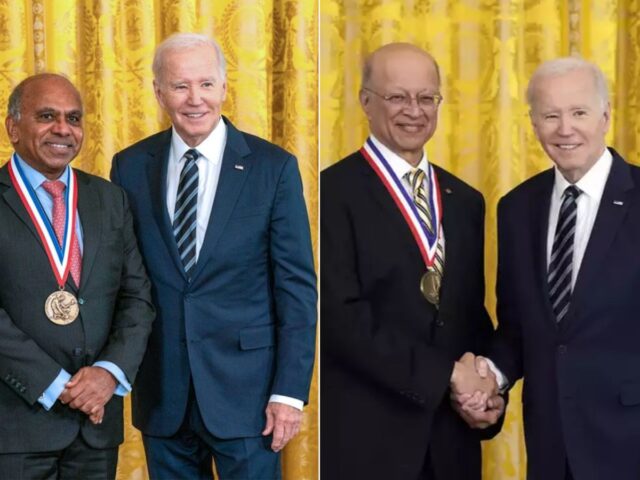On October 24, US President Joe Biden conferred the country’s highest scientific awards to two Indian-American scientists, Dr. Subhra Suresh and Dr. Ashok Gadgil, in recognition of their contributions in the fields of science and technology. Dr. Gadgil was awarded the prestigious White House National Medal for Technology and Innovation. Dr. Gadgil is a professor emeritus of civil and environmental engineering at UC Berkeley. He was awarded for his immense contribution to providing life-sustaining resources to communities worldwide. Dr. Suresh was awarded the National Medal of Science to honor his pioneering work across the fields of engineering, physical sciences, and life sciences, especially in the study of material science and its interdisciplinary application.
Dr. Ashok Gadgil:
Born in Mumbai in 1950, Dr. Gadgil is the Andrew and Virginia Rudd Family Foundation Distinguished Chair and Professor of Safe Water and Sanitation at the University of California, Berkeley. He is currently an affiliate retiree of the Berkeley Lab and the former division director of the Energy Technologies Area. His specializations are in the areas of heat transfer, fluid dynamics, and technology for development. Dr. Gadgil has been instrumental in developing low-cost solutions to some of the acute problems faced by developing countries, like safe drinking water technologies, affordable and efficient electric lighting, and energy-efficient stoves. His robust innovations have helped more than 100 million people. He has also worked on developing energy efficiency and computational fluid dynamics for indoor air and pollutant flows.
According to the White House, the National Medal for Technology and Innovation is awarded in recognition of “American innovators whose vision, intellect, creativity, and determination have strengthened America’s economy and improved our quality of life.” It added that Dr. Gadgil was being presented with the award for “providing life-sustaining resources to communities around the world. His innovative, inexpensive technologies help meet profound needs, from drinking water to fuel-efficient cookstoves.”
Dr. Subhra Suresh:
Also born in Mumbai in 1956, Dr. Suresh was nominated by former US President Barack Obama to head the National Science Foundation in 2010. After being unanimously elected by the US Senate, he became the first Asian-born American to lead the National Science Foundation from 2010–13 as its 13th Director. Dr. Suresh is responsible for the Centre-Life Balance programme, an initiative that encourages increasing the number of women at the doctoral level in the fields of science and technology from 26% to 40% from 2011–21.
The White House calls the National Medal of Science the “nation’s highest scientific honor” to be conferred upon those with “outstanding contributions in biology, computer sciences, education sciences, engineering, geosciences, mathematical and physical sciences, and social, behavioral, and economic sciences, in service to the tion.” The National Science and Technology Medals Foundation noted Dr. Suresh’s committed research that could bridge gaps between nations through scientific progress. The award was also conferred upon him in recognition of his potential to promote international cooperation through it. Dr. Suresh was also a recipient of the Padma Shri award, India’s fourth-highest civilian honor, bestowed on him in 2011.
Conclusion:
India has made considerable progress in several academic fields, including those of science and technology. With undeniably path-breaking work done in premier institutes of the country and by the Indian diaspora, such awards are truly encouraging for those in the field. The contributions of recipients like Dr. Suresh and Dr. Gadgil will not only help advance the fields of science and technology but also promote academic cooperation and exchanges, in turn promoting multilateral relations.









